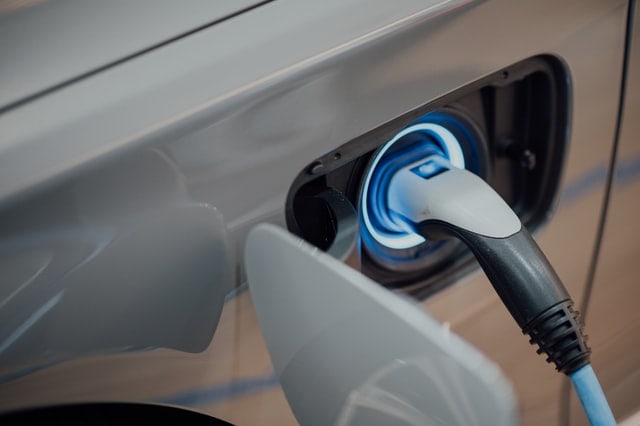The Future of Automotive is Electric

Welcome to REV Auto Groups Blog page, we will be continuously updating relevant blog posts and the advancement of electric vehicles and how to better our lives and community. We hope you enjoy the read and please if you have any questions or want us to feature a blog let us know.
What, you may ask, is an electric vehicle (EV)? An electric vehicle is a vehicle that uses one or more electric motors for propulsion (source: https://en.wikipedia.org/wiki/Electric_vehicle)

There are many kinds of electric vehicles for ground and air transportation. The main four types include:
1) Battery Electric Vehicles (BEVs)
Onboard batteries power one or more electric motors. Plug batteries into the electricity grid to re-charge.
(insert click link to go into more depth explaining how each works.)
2) Hybrid Electric Vehicles (HEVs)
Combines an internal-combustion engine (ICE) with an electric motor. HEV batteries are charged by onboard operations, not by plugging into the grid.
3) Plug-in Hybrid Electric Vehicles (PHEVs)
Powered by an internal-combustion engine (ICE) and an electric motor. Plug the onboard battery into the grid to charge.
4) Fuel-cell Electric Vehicles (FCEVs)
Fuel cells generate electricity by combining oxygen and hydrogen. Some FCEVs are just coming on the market, and few re-fuelling stations are available.
How electric vehicles can save our health and environment.
One of the largest causes of climate pollution in North America is transportation. This has been a growing concern for our environment and sustainability for our future generations.
We have only a decade left to start changing the way we use energy to avoid the worst impacts of climate change by making the vehicles on our roads as clean and green as possible.
The emissions produced by passenger and commercial vehicles are not only harsh on our environment, but they are also affecting our health. The air pollutants from diesel and gas-powered vehicles have been known to cause premature death, cancer, heart conditions, asthma, and bronchitis. Pollution of localized communities can last a lifetime.
As the COVID-19 pandemic continues to spread, a study by Harvard University found a “striking association between long-term exposure to harmful fine particulate matter and COVID-19 mortality in the United States.” One of the main causes of fine particulate matter pollution is combustion from gasoline and diesel vehicle engines.
Electric Vehicles have a smaller carbon footprint.
A fully electric car runs entirely on electricity and has zero tailpipe emissions. However, EVs are not 100% emissions-free due to the manufacturing process, and the makeup of our electricity supply.
Canada’s electricity mix is quite clean, it’s actually one of the best countries in the world to drive an EV. Using electricity to power an EV in Canada can reduce greenhouse gas emissions by 60-90% per vehicle. Even factoring in the full scope of emissions that occur in both electricity supply and vehicle manufacturing, studies show that EVs and plug-in hybrids produce much fewer overall emissions than gas-powered cars, particularly in Canada. With Canada moving to ban coal in all provinces by 2030 (Ontario has already banned coal!) this footprint will only get lower and lower over time.
Most EV batteries are lithium-based and do in fact take more energy to manufacture than gas-powered cars. In spite of this, they still produce far fewer polluting emissions over their lifetimes, most of them in the first 18 months of ownership! Making them a very real choice for reducing your carbon footprint.
“Environmentally friendly electric cars will soon cease to be an option … they will become a necessity.”
—Fujio Cho, Honorary Chairman of Toyota Motors
References:
